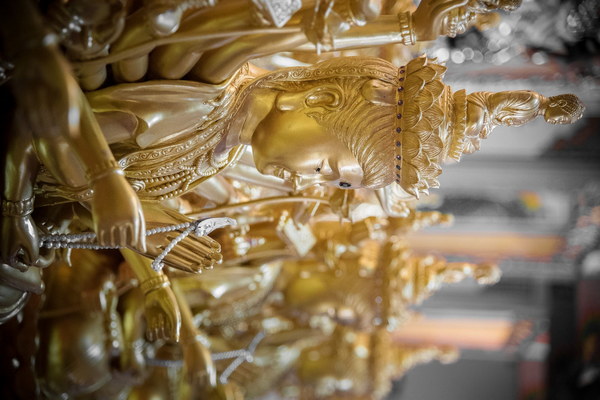Nourishing the Kidneys Traditional Chinese Insights and Modern Applications of 'Buxinzu'
In the realm of Traditional Chinese Medicine (TCM), the concept of 'Buxinzu' holds significant importance. Literally translating to 'nourish the kidneys,' this principle emphasizes the vital role that the kidneys play in maintaining overall health and well-being. The kidneys, according to TCM, are the root of one's essence and are closely linked to vitality, fertility, and longevity. This article delves into the traditional wisdom surrounding 'Buxinzu' and explores its relevance in contemporary health practices.
The Philosophy of 'Buxinzu'
In TCM, the kidneys are considered the foundation of life, storing the essence (Jing) that governs growth, development, and reproduction. The essence is believed to be the fundamental substance that provides vitality and energy to the body. When the kidneys are healthy, the body is strong, and when they are depleted, weakness and disease may follow.
The concept of 'Buxinzu' is rooted in the understanding that the kidneys are particularly sensitive to external factors such as stress, diet, and environmental conditions. Therefore, the practice involves not only the use of herbal remedies but also lifestyle adjustments that support kidney health.
Traditional Chinese Herbs for Kidney Nourishment

TCM utilizes a variety of herbs to nourish the kidneys and promote overall health. Some of the most commonly used herbs include:
- He Shou Wu (Polygonum multiflorum): Known for its ability to replenish kidney essence and promote hair growth, this herb is a staple in many kidney-nourishing formulas.
- Dong Quai (Angelica sinensis): This herb is often used to balance the kidneys and improve fertility.
- Cordyceps sinensis: Known as the King of Herbs, Cordyceps is believed to enhance kidney function and boost the immune system.
- Rehmannia glutinosa: This herb is used to nourish the kidneys and blood, supporting energy levels and overall vitality.
Modern Applications of 'Buxinzu'
While the traditional methods of kidney nourishment are deeply rooted in TCM, modern science has also recognized the importance of kidney health. Research has shown that certain nutrients and lifestyle factors can contribute to kidney health:
- Nutritional Supplements: Some modern supplements, such as omega-3 fatty acids, antioxidants, and vitamin D, have been found to support kidney function.
- Exercise: Regular physical activity can help maintain a healthy weight, which is beneficial for kidney health.
- Hydration: Adequate water intake is crucial for kidney function, as it helps to flush out waste products and toxins.
Lifestyle Adjustments
In addition to herbal remedies and nutritional supplements, lifestyle adjustments are key to implementing the principle of 'Buxinzu':
- Stress Reduction: Chronic stress can negatively impact kidney health. Practices such as meditation, yoga, and deep breathing exercises can help manage stress levels.
- Balanced Diet: A diet rich in fruits, vegetables, whole grains, lean proteins, and healthy fats can support kidney health.
- Regular Check-ups: Regular health screenings can help detect kidney problems early and allow for timely intervention.
Conclusion
'Buxinzu,' the ancient principle of nourishing the kidneys, continues to offer valuable insights into maintaining health and vitality. By combining traditional herbal remedies with modern scientific knowledge and lifestyle adjustments, individuals can effectively support their kidney health and overall well-being. Whether through the wisdom of TCM or the advancements of modern medicine, the pursuit of kidney health remains a cornerstone of longevity and quality of life.








![Experience Relaxation at Jiang'an Hongqiao Foot Massage Call Us Now at [Phone Number]!](http://img.bluepurple.cn/a/养生/597/Experience-Relaxation-at-Jiangan-Hongqiao-Foot-Massage-Call-Us-Now-at-Phone-Number.jpg)
